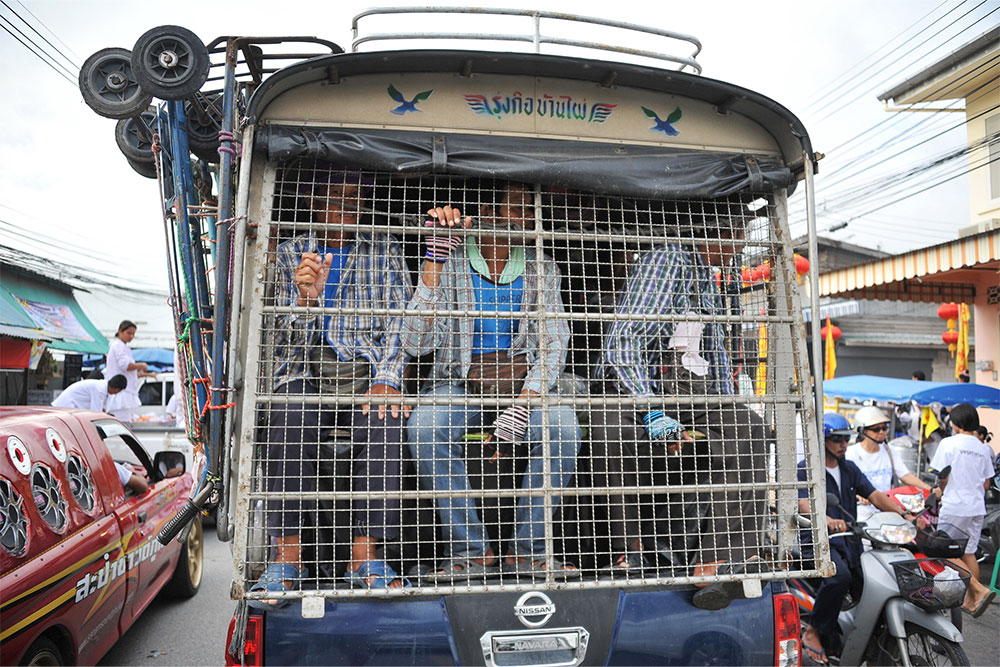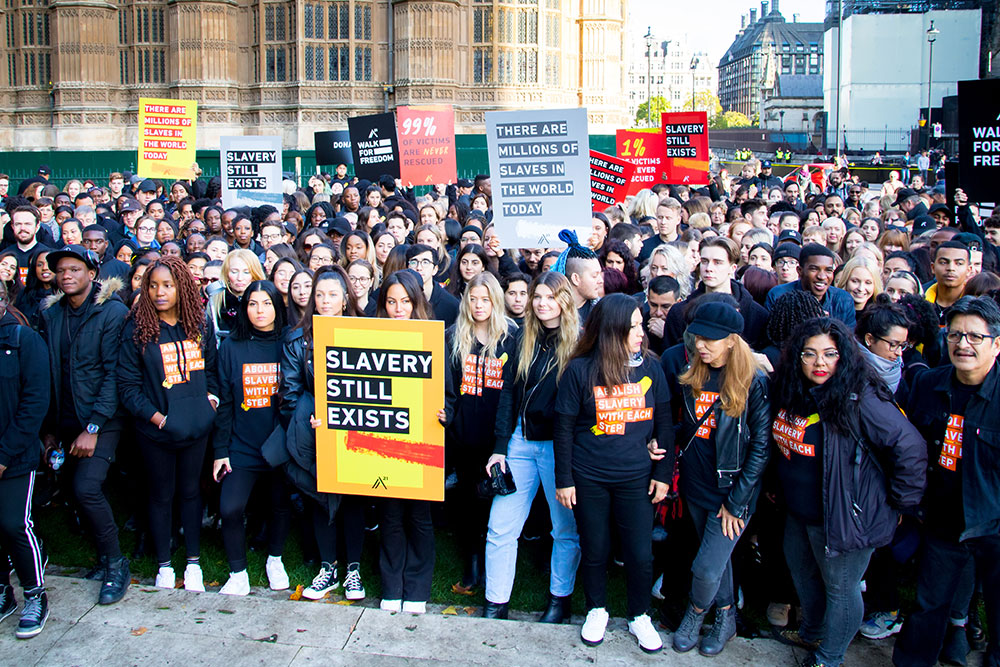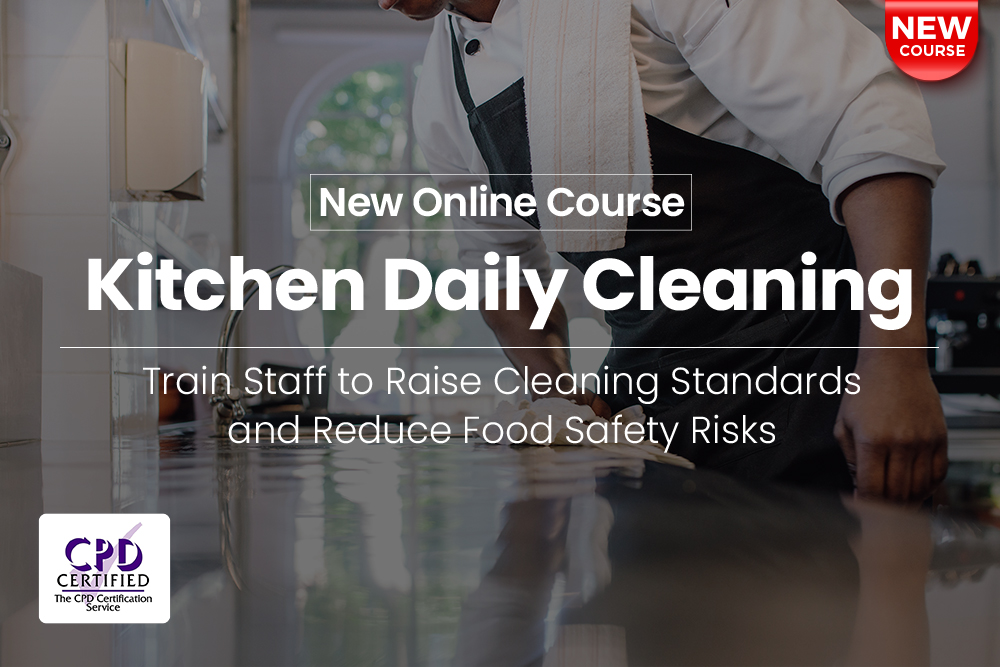
You might think that slavery is a thing of the past, but it still exists today. Almost 50 million people worldwide are trapped in what’s called modern slavery.
Modern slavery describes when a person is controlled and coerced to work. It’s often hidden – but commercial organisations in the UK have a moral and legal duty to root out this kind of exploitation in their supply chains.
In this blog, we explain the basic types of modern slavery and their warning signs, plus what to do if you suspect it.
Key Takeaways
- Over 50 million people live in modern slavery worldwide.
- Victims are often tricked, threatened or trapped by debt. They may not be paid, allowed to leave or be aware of their rights.
- The Modern Slavery Act 2015 is the UK’s primary law tackling modern slavery. It criminalises slavery, servitude, forced labour and human trafficking.
- Under the Modern Slavery Act, large businesses must report on how they are preventing modern slavery in their operations and supply chains.
What Is Modern Slavery?
Modern slavery is an umbrella term describing the exploitation or control of people for personal gain. Types of modern slavery include forced labour, debt bondage, human trafficking, sexual exploitation, domestic servitude and forced marriage.
Victims are typically already vulnerable. Migrants, children or those in extreme poverty are common targets because they’re already desperate, isolated or are unable to push back.
Modern slavery is often hidden. It happens across many industries, including construction, agriculture, hospitality and care. It can also take place in private homes.
How Common Is Modern Slavery?
According to the International Labour Organization (ILO), around 50 million people are living in modern slavery around the world.
In the UK, 19,125 people were referred in 2024 as possible victims of modern slavery to the National Referral Mechanism (NRM), the official framework for identifying and supporting victims of modern slavery.

What Are the Main Types of Modern Slavery?
There are many types of modern slavery. Here are the most common:
1. Forced Labour
Forced labour is when someone is made to work long hours with little or no pay, under threat or coercion.
People trapped in forced labour are typically:
- Denied time off for rest or relaxation
- Watched constantly
- Paid far below the minimum wage or not at all
- Threatened or hurt
- Robbed of their passport or ID
According to the International Labour Organization, 27.6 million people around the world are considered forced labourers. This kind of slavery mostly happens in farming, construction, cleaning, restaurants and factories.
2. Debt Bondage
Debt bondage describes when someone is forced to work to repay a debt.
Many people fall into this trap when they borrow money to travel for work or to support their families. Once they arrive, they find the debt is grossly inflated or constantly growing – keeping people in bondage indefinitely.
3. Child Slavery
Child slavery happens when children are forced to work. The work is typically hazardous and prevents children from attending school.
Child slaves are often made to:
- Work long hours in factories
- Clean homes
- Sell goods on the street
- Work on farms or in mines
- Beg or steal
- Join criminal gangs
According to the ILO and UNICEF’s 2024 estimates, around 138 million children aged 5 to 17 are engaged in child labour worldwide, which isn’t always considered slavery.
Child labour refers to work that harms a child’s health, development or education.
Child slavery, in contrast, involves children being owned, controlled or forced to work through threats, abuse or coercion.
While there is a distinction, both are illegal under UK legislation.
4. Human Trafficking
Human trafficking means moving people from one place to another to take advantage of them. This can be inside one country or between countries. It is one of the most serious forms of modern slavery due to the extreme harm it causes.
People are often promised a good job or a better life. But once they move, they are forced into work, crime or sex.
They may face violence, isolation and long-term trauma, with little chance to escape or seek help. In many cases, the victim’s passport is taken, keeping them trapped in an unfamiliar country and reliant on the traffickers.
According to the United Nations Office on Drugs and Crime (UNODC) Global Report 2024, based on data from 156 countries (covering 95% of the global population), there were 202,478 recorded cases of human trafficking between 2020 and 2023.
5. Sexual Exploitation
Sexual exploitation is when someone is forced to take part in sexual acts. This might happen through pressure, threats, lies or control.
Victims may be:
- Tricked into thinking they are in a relationship
- Offered a job that turns out to be sex work
- Kept in unsafe places
- Told they will be hurt or shamed if they leave
This can happen to women, men or children. Victims often feel scared, ashamed or unable to ask for help.
According to the UNODC Global Report on Trafficking in Persons, close to 60% of trafficked girls in 2022 were victims of sexual exploitation.
6. Domestic Servitude
Domestic servitude is when someone is forced to work in a private home, typically cooking, cleaning or caring for children or the elderly.
They may:
- Work extremely long hours with no break
- Suffer from physical and emotional abuse
- Be denied sleep, food or medical care
- Be cut off from family or the outside world
This type of slavery is hard to find because it happens behind closed doors.
In the UK, most victims are migrants. Some are undocumented and will accept any available work because of their vulnerable status, while others hold work visas that tie them to a specific employer.
In either scenario, people are vulnerable to exploitation. Amoral employers can abuse migrant workers, knowing that if they speak out or try to move on, they risk deportation.
7. Criminal Exploitation
In criminal exploitation, people are forced to do illegal things. They may be made to:
- Sell drugs
- Steal
- Beg
- Carry weapons
- Claim fake benefits
In the UK, children are often used by gangs in “county lines” drug dealing. They are given mobile phones and told to deliver drugs. If they try to leave, they may be threatened or attacked.
8. Forced Marriage
Forced marriage happens when someone is made to marry without choosing to. Victims may be threatened or pressured, and are often underage.
Victims of forced marriage may face:
- Abuse at home
- Threats of shame or punishment
- Pressure from family or community
Latest statistics show that about 22 million individuals were living in forced marriage situations.
In the UK, forced marriage is illegal. People under 18 cannot get married, even with parental permission, and adults must agree freely, without coercion. The Forced Marriage Unit helps protect people from this type of modern slavery here.
9. Exploitation in Supply Chains
Many products we use every day, such as clothes, food, and phones, are made in stages. These stages may involve people working in poor conditions or being forced to work.
For example, a t-shirt may go through several stages:
- Cotton is picked by workers
- Cotton is spun into fabric
- Fabric is sewn into a shirt
- Shirt is shipped to a retailer
At any point, someone may be exploited. They may be forced to work hours beyond legal limits for little to no pay, and often under threat of violence.
What the UK Is Doing
The UK has taken steps to fight modern slavery. The most important tool is the Modern Slavery Act 2015. This legislation:
- Makes all forms of modern slavery and human trafficking criminal offences
- Increases penalties for offenders, including longer prison sentences
- Requires large businesses (with a turnover of £36 million or more) to publish annual Modern Slavery Statements, showing the steps they are taking to prevent slavery in their supply chains
- Establishes the role of the Independent Anti-Slavery Commissioner to promote good practice in prevention, detection, investigation and victim support
In addition, the UK operates the National Referral Mechanism (NRM), a framework for identifying and supporting potential victims of modern slavery. Through the NRM, victims may receive safe accommodation, medical care, legal aid and protection from immediate threats or harm.
Law enforcement agencies, local authorities and specialist organisations work together under this system to investigate cases, prosecute traffickers and support survivors.
What You Can Do
As an employer, you may not always see exploitation – especially when workers are hired through labour providers, subcontractors or outsourced services. But modern slavery can still be present on your sites or in your supply chains. Victims may appear to be regular staff while secretly being controlled, underpaid or unable to leave.
You have a legal and ethical duty to act.
Here are three key actions you can take:
1. Learn the Signs
Know what to look for. A worker might be a victim if they:
- Are always watched or controlled by someone else
- Seem afraid, anxious or unable to speak freely
- Have no access to money, ID or travel documents
2. Report Concerns
If you think someone might be in danger or being exploited:
- Call the Modern Slavery Helpline on 08000 121 700
- Contact the police if it’s an emergency or someone is at risk
Do not attempt to confront suspected traffickers or victims directly. Reporting through proper channels helps ensure the safety of everyone involved.
3. Make Informed Choices
Your business decisions can reduce risk. Make sure your supply chains follow ethical labour practices:
- Choose suppliers who audit and monitor working conditions
- Ask questions about recruitment practices and subcontracting
- Support organisations that work to protect victims of modern slavery
Modern Slavery in Workplaces
Understanding what modern slavery looks like in the workplace takes more than awareness. Your staff need to be able to recognise the signs and respond confidently and correctly.
That’s why training is essential.
We offer online Modern Slavery Training that helps employees and managers understand:
- How modern slavery happens in work settings
- Signs of exploitation to watch for
- Their legal duties under UK law
- How to report and respond to concerns
Enrol your staff in the course today and learn how to spot the signs and take the right action for preventing modern slavery.

























































































































































































































































































































































































































































































































































































































































































































































